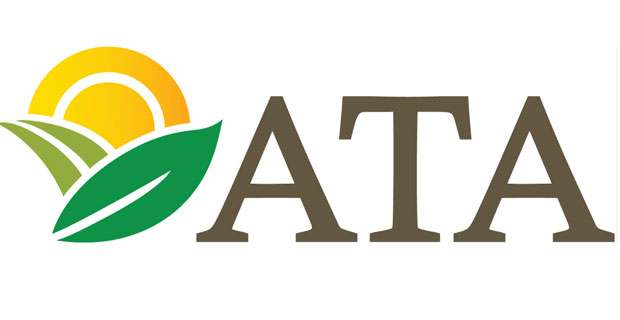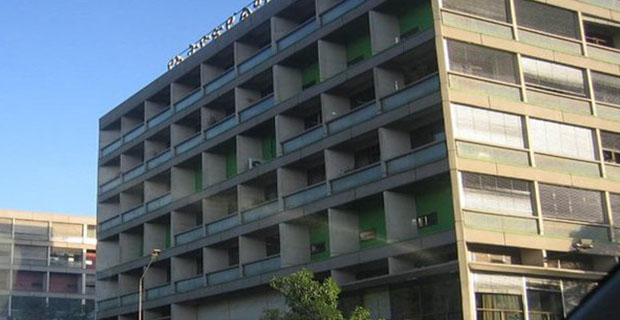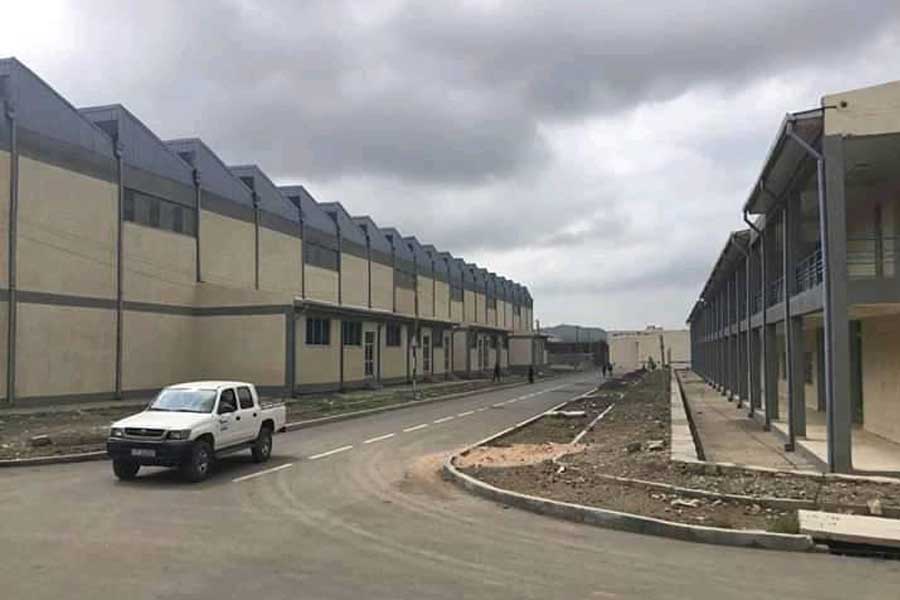
Radar | Feb 22,2020
Feb 5 , 2022
By BERSABEH GEBRE ( FORTUNE STAFF WRITER )
Officials of the Addis Abeba City Administration are pushing to establish an industry cluster zone on 40ht of land in Akaki Qality District, aspiring to meet goals in a cluster development strategy adopted a decade ago.
The strategy identifies industrial clusters as the primary tool for promoting micro, small and medium-scale manufacturing industries.
The latest project is estimated to cost six billion Birr, of which the City Council approved one-third of the budget at the end of last year. When completed, the industrial cluster will be available for small and medium manufacturing businesses. City officials pledge to commit the industrial zone to 1,000 textiles, leather, steelwork, construction materials and chemicals producers.
Officials of the Mega Projects Construction Office under the city administration floated a bid two weeks ago to hire contractors on behalf of the Addis Abeba Labour, Enterprise & Industry Development Bureau. The three-lot bid, which will be closed next month, comprises construction works on two complexes, each with up to 10 blocks. According to Girma Abera, director of the industry cluster working premises development at the Bureau, the construction is expected to begin this year and be completed in two years.
The city cabinet had approved a 100ht of land for the construction of the industrial cluster four years ago. However, the area has since been reduced to 93ht for the land along the Beseka River. A little less than half of this plot was made available for construction, although clearing work remains to be done on the rest of the space.
The project is necessary to make space available, bring enterprises together and create market linkages, says Girma.
It was designed based on a model master-plan developed four years ago by Mahendra, an Indian-based firm, in a joint venture with the then Ministry of Trade & Industry and the Federal Small & Medium Manufacturing Industries Development Enterprise. The master plan recommended clusters should sprawl over 50, 100 and 250ht of land, depending on the economic viability of the areas under consideration.
A feasibility study was conducted two years ago using industrial clusters established in South Korea as a benchmark, where 900 industrial clusters account for 62pc of the country's manufacturing production and 80pc of total annual export earnings.
The state-owned Ethiopian Construction Design & Supervision Works Corporation carried out the design work for the cluster zone in 2018, at the cost of 20 million Br. It will continue to do the supervision and contract administration works.
Industrial parks are built to accommodate investments in large-scale manufacturing. Bole-Lemi Industrial Park, one of 10 operating in the country, is located in the outskirts of Addis Abeba. The firms operating there registered export revenues of 44.5 million dollars last year. The City Administration's project looks to provide similar working premises for small businesses, with a capital between 100,000 and 1.5 million Br. Companies registered with capital between 1.5 million and 20 million Br are classified as medium enterprises.
Over 18,000 small and medium-level manufacturing businesses are registered, employing more than half a million people. According to data from the Ethiopian Statistical Service, nearly 70pc of medium and large-scale manufacturing industries operating in Ethiopia are located in and around the capital.
The initiative is an attempt to formalise more naturally-occurring clusters in the city. For instance, the handloom cluster around Shiro Meda in Gulele District has been running for more than five decades. Close to 1,000 enterprises engaged in producing handwoven cotton clothes are in the area.
Daniel Eyob & Friends Aluminium, Steel & Woodworks Association is set to receive space in the industrial cluster after the City Administration registered the enterprise in 2018. In business for the past 17 years, it is one of the 390 medium-scale enterprises located in Addis Abeba. Daniel Eyob, the manager, says finding an adequate space is a challenge to the business's growth. His enterprise has leased a 52sqm space around Lideta, for 10 Br a square metre in rent.
“The cluster would offer an opportunity for market linkage as similar manufacturers would be working together," said Daniel.
He hopes to receive 700sqm of working space to expand the business.
Enterprises selected from those engaged in export and import-substituting industries will be given space inside the cluster at minimum rental fees, Girma disclosed.
“The project aims to avail spaces for industries at lower costs and support industrialisation efforts,” he said.
Abraham Mengistu, one of the shareholders of Yishak & Friends, a medium-scale manufacturer in the leather industry, appreciates the move as it would reduce the monthly rental fee of 40 Br a square metre for their shed in the Saris neighbourhood.
"It helps to find a market when similar manufacturers are located in one place," said Abraham.
If Daniel and Abraham believe the cluster will offer a wide range of advantages for their businesses, it is not without sufficient reason. Belay Mengiste (PhD), business advisor at the Entrepreneurship Development Center, a quasi-governmental entity, believes the availability of inputs, specialised labour, and services in nearby locations can help reduce business costs. However, Belay argued that the effort would be in vain in the absence of access to finance and markets.
Small and medium enterprises received a little more than seven billion Birr in credit last year, according to a report published by the National Bank of Ethiopia (NBE). It represents a mere 2.5pc of the 250 billion Br in loans and advances the 18 commercial banks had disbursed over the same period.
PUBLISHED ON
Feb 05,2022 [ VOL
22 , NO
1136]

Radar | Feb 22,2020

Radar | Mar 25,2023

Radar | Jan 15,2022

Fortune News | Feb 23,2019

Radar | Nov 28,2020

Viewpoints | Jun 15,2024

Fortune News | May 18,2019

Fortune News | Nov 09,2019

Viewpoints | Mar 13,2021

Radar | Oct 05,2019

Jul 13 , 2024 . By AKSAH ITALO
Investors who rely on tractors, trucks, and field vehicles for commuting, transportin...

Jul 13 , 2024 . By MUNIR SHEMSU
The cracks in Ethiopia's higher education system were laid bare during a synthesis re...

Jul 13 , 2024 . By AKSAH ITALO
Construction authorities have unveiled a price adjustment implementation manual for s...

Jul 13 , 2024
The banking industry is experiencing a transformative period under the oversight of N...

Jul 20 , 2024
In a volatile economic environment, sudden policy reversals leave businesses reeling...

Jul 13 , 2024
Policymakers are walking a tightrope, struggling to generate growth and create millio...

Jul 7 , 2024
The federal budget has crossed a symbolic threshold, approaching the one trillion Bir...

Jun 29 , 2024
In a spirited bid for autonomy, the National Bank of Ethiopia (NBE), under its younge...